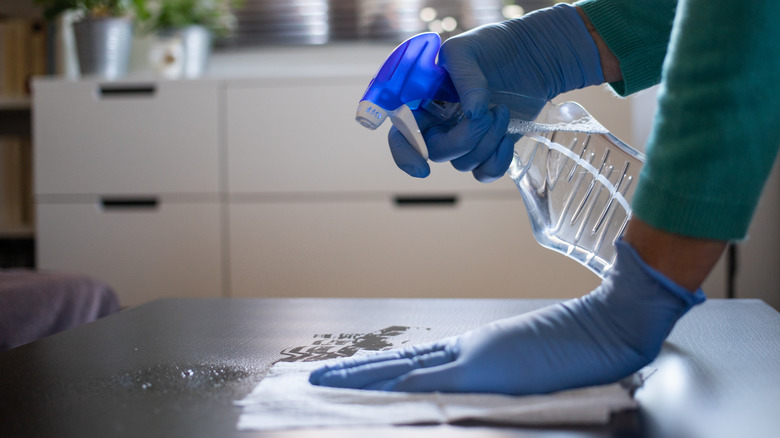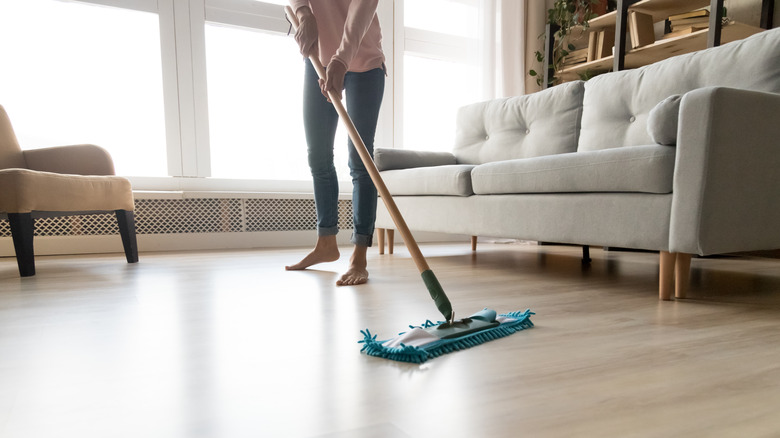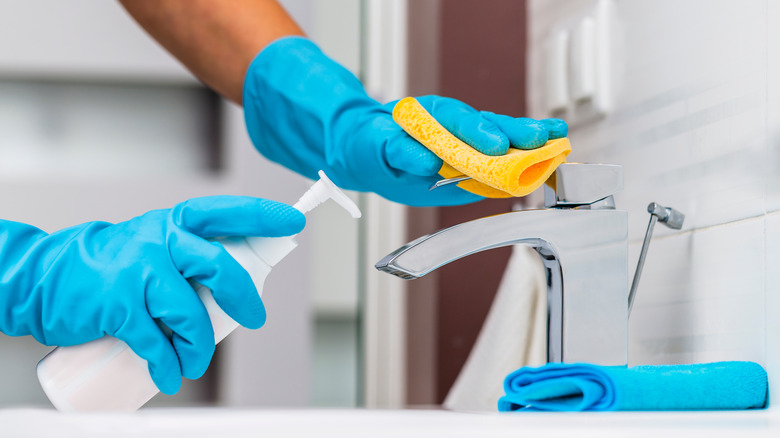What You Actually Shouldn't Clean With An All-Purpose Solution
An all-purpose cleaner is one that's marketed as being able to clean almost every surface. You may be surprised to find out that not every all-purpose cleaner is made of the same ingredients, per Cleancult. Each brand uses different ingredients to create its unique formula, and they usually work either as a mild disinfectant or an all-around cleaning solution. Clean My Space describes all-purpose cleaners as solutions that are gentle enough to clean most surfaces but strong enough to remove dirt and some germs.
However, the term all-purpose cleaner is actually quite misleading. While an all-purpose solution can clean most surfaces, there are some things it cannot. This is because of two main reasons: either the chemicals could damage the surface, or the chemicals aren't strong enough to fully clean the surface. While an all-purpose cleaner is a great product to have on hand, it's important to know which surfaces can safely be cleaned and which ones shouldn't be cleaned with this solution.
What can be cleaned
When using an all-purpose cleaner, most sources agree that your windows and other glass surfaces are safe to clean. Cleancult says that spraying the cleaner directly onto the glass surface and wiping it with a dry cloth will do. However, you'll want to make sure you rub the surface well enough to avoid leaving streaks. In fact, because some cleaners leave many streaks, Family Handyman doesn't recommend using all-purpose cleaners on mirrors — However, these surfaces definitely won't be damaged by this solution.
You can also safely clean laminate and steel with an all-purpose cleaner, without worrying about damage (per Cleancult). Additionally, most floors can also be cleaned with an all-purpose cleaner. First, dilute the cleaner in warm water before mopping your floor (if you have wood floors, spot testing is best to make sure it won't damage the finish.) Most wood surfaces can be cleaned with an all-purpose cleaner since they are usually finished with a protective layer.
What cannot be cleaned
However, there are many things that should not be cleaned with an all-purpose cleaner. Clean My Space says that all-purpose cleaners are not effective in areas with lots of grease, germs, or stains. Because of this, Family Handyman recommends cleaning kitchen appliances and bathrooms with a stronger disinfectant. Keeping these areas thoroughly clean and disinfected is important for your health and safety.
You should avoid using all-purpose cleaners on any unfinished wood, though. This is because wood is naturally porous and the chemicals can damage the surface. The same goes for stone that hasn't been sealed with a protective treatment. Avoid using all-purpose cleaners on toys or aquariums and cages to protect your children and pets from potentially harmful chemicals. For a safer all-purpose cleaner, try mixing 1 tablespoon of dish soap and 2 cups of water, suggests Clean My Space. You can also add a scent with a few drops of essential oil.


